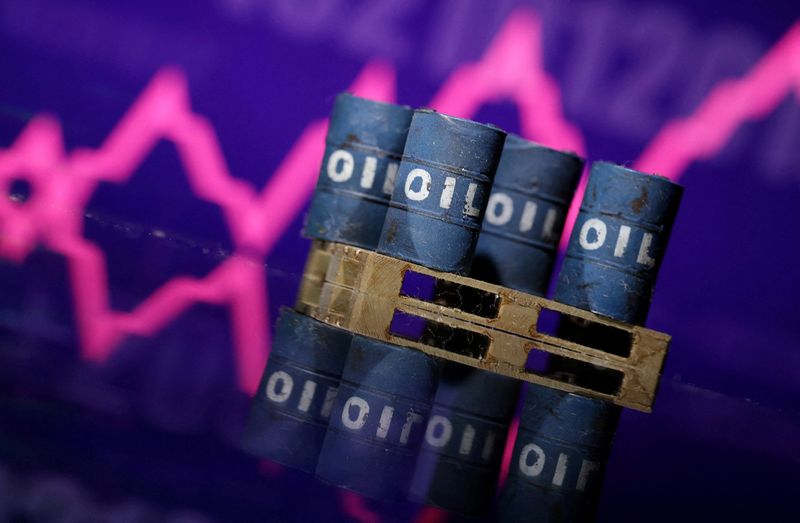(Reuters) – Oil and gold prices rose and Japan’s yen rallied on Friday on reports Israeli missiles have hit a site in Iran.
Iran’s Fars news agency said explosions were heard at an airport in the Iranian city of Isfahan but the cause was not immediately known. Several flights were diverted over Iranian airspace, CNN reported.
Israel had said it was going to retaliate against Iran after the latter’s April 13 missile and drone attack.
Market reaction: [US/][MKTS/GLOB][O/R]
QUOTES:
MOH SIONG SIM, CURRENCY STRATEGIST, BANK OF SINGAPORE, SINGAPORE
“It’s pretty obvious market is nervous … I think right now we don’t really have the details. It really depends on how calibrated the attacks are. So I think markets are at this stage in a flight to safety mode … right now, we’re still in a situation where we know something has happened. But we need to understand the degree of the degree of retaliation.”
DAMIEN BOEY, CHIEF MACRO STRATEGIST, BARRENJOEY, SYDNEY
“I think what’s happening in the Middle East is making that upward inflection point with global inflation all the more real.
“Today equities are down and bonds are up … Look, that makes sense from a risk perspective, but I still think that bonds and equities are more or less still correlated. To me, until we resolve this uncertainty about global inflation, actually bonds and equities will move together. So there’s not a lot of diversification. What I’d much rather be doing is looking at a third alternative asset class, which of course would be commodities. Commodities have been a very unloved source of diversification. Now what you’re starting to see is that no matter whether interest rates in the U.S. go up or down, gold prices are just going up and that’s telling you that there’s a rush to the exits to get out of the things which are moving too closely together, like bonds and stocks and maybe credit.
” prices have risen despite the stronger U.S. dollar. So what happens when the U.S. dollar eventually goes down? What you’ll find is that the U.S. dollar will probably be too expensive and need to come down, in which case gold could get another leg up.”
KHOON GOH, HEAD (LON:) OF ASIA RESEARCH, ANZ, SINGAPORE
“Markets have definitely reacted very, very swiftly to the news reports. We’ve seen a massive risk-off move with gold rallying, oil prices rallying, and traditional risk assets getting sold out hard. I guess markets at this stage will want to get greater clarity and confirmation over the extent of the attack, and I think more importantly, any response from Iran …
“Markets will be very worried that this is the start of a tit-for-tat escalation which could create huge volatility in the Middle East.”
CHRISTOPHER WONG, CURRENCY STRATEGIST, OCBC, SINGAPORE
“It’s a big dampener on risk assets, including equities and most currencies.
“While policymakers in the region and the U.S. have collectively taken a more proactive stance to calm FX markets, the re-emergence of geopolitical shocks may unnerve sentiments. Safe-haven proxies including gold, dollar, Swiss franc, and yen may see further demand in the interim.”
CHARU CHANANA, HEAD OF CURRENCY STRATEGY, SAXO, SINGAPORE

“A triple whammy of sorts for the markets, as Fed’s hawkishness keeps taking a leg up with each passing day and semiconductor earnings have so far fallen short to counter that risk off.
“To top it off, geopolitical risks have escalated again with Israel’s strikes on Iran, and risk sentiment could remain weak as we await more details on damages and casualties, and fears of an Iran response are also likely to underpin.”









